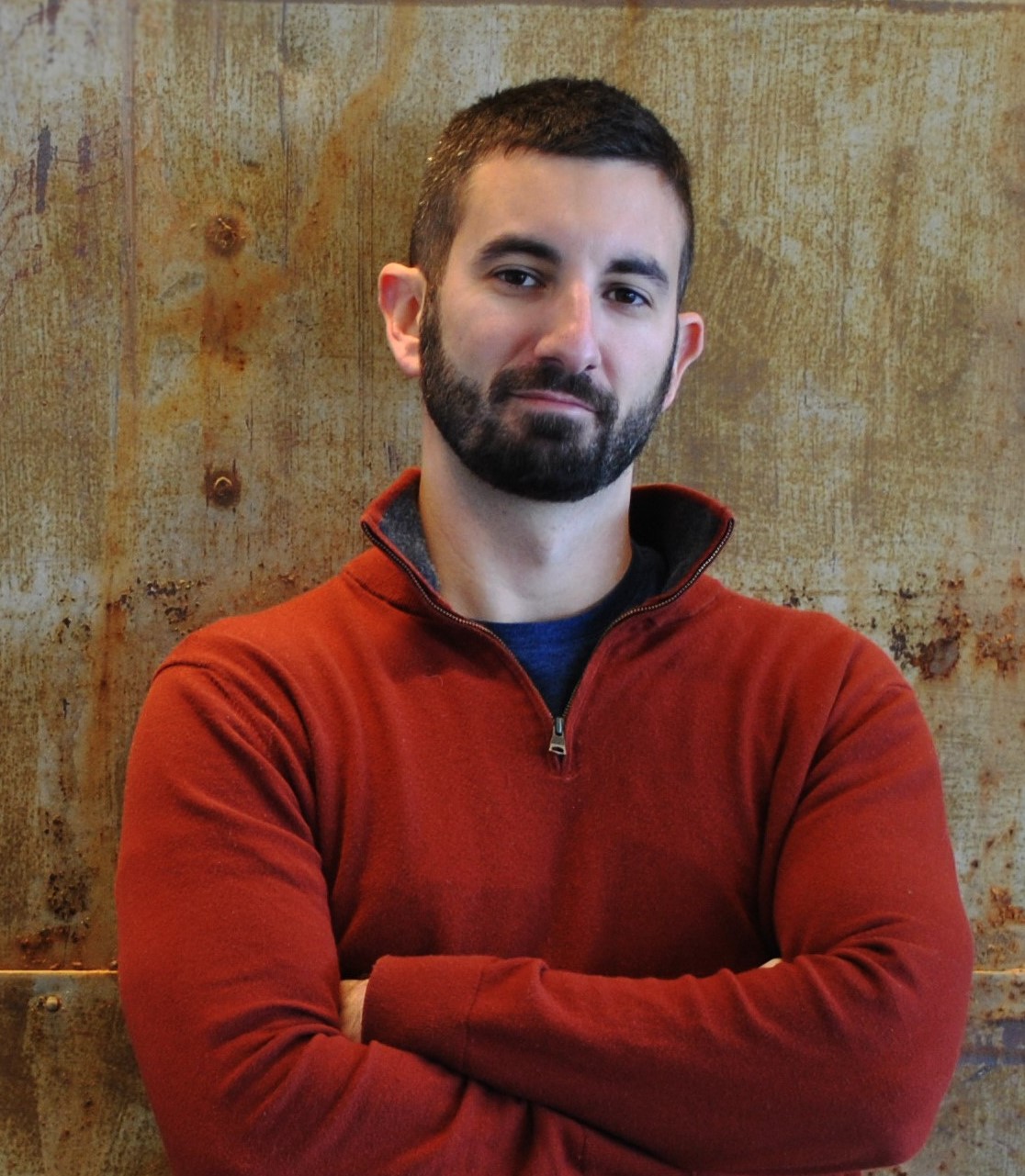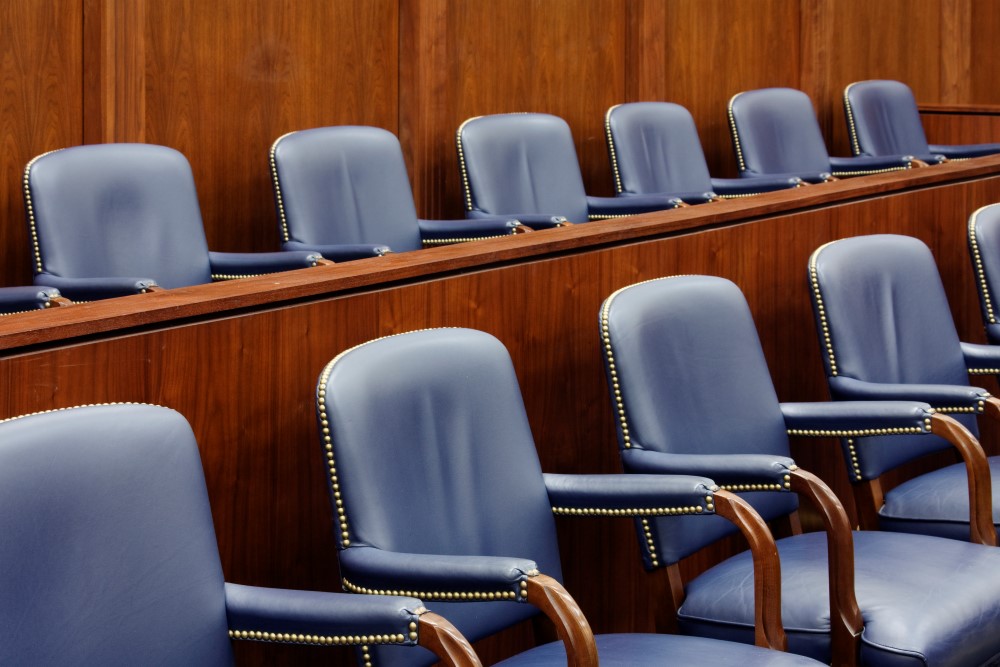Adapting to Change in Local Government: A Legal Perspective
Jason Hernandez is a local government lawyer for a consolidated city and county government. He shares his journey from being a non-traditional law student to a public defender and, later, a key legal role in local government management. While still junior in his second career, Jason is already developing his niche with public safety departments, representing them in lawsuits and in collective bargaining agreements, as well as helping them navigate workplace policy changes. Ensuring a just and safe community in a sea of cultural and legal change requires him to balance many different perspectives. Jason is a 2019 graduate of the University of Kentucky J. David Rosenberg College of Law.
Transcript
Kyle McEntee:
We're joined today by Jason Hernandez, a 2019 graduate of the University of Kentucky J. David Rosenberg College of Law. He's a county government lawyer for the Lexington-Fayette Urban County Government. Almost 50 years ago, the City of Lexington Government and Fayette County Government consolidated into a single system. This limits the duplication of services, including legal, and is otherwise intended to make local government management more efficient. So, Jason, before we get into your role with the government, let's talk a little bit about you. You were self-described as a non-traditional student. Why exactly do you say that?
Jason Hernandez:
Well, let's just say I was in law school at an age where I didn't know who Harry Potter was and I didn't really fit in with the rest of the kids there. I was about 20 years older than they were. I started at the age of 41 back in 2016. So I'm still fairly new at the game, but definitely felt that generational gap while I was there. Although I'm very thankful to have attended when I did because I have friends now that I hopefully have the rest of my life that I would have never had had I gone to school when I probably wanted to or could have back in the 90s.
Kyle McEntee:
What pushed you off that path after college?
Jason Hernandez:
I started working at the TV station at the college I went to, Cumberland College in Williamsburg, Kentucky. And I basically just did that for four years, just producing videos, shooting videos, appearing on TV, writing scripts. And it seemed to take me away from my initial plan of going to law school.
Then I was going to go to law school and a girl I was dating at the time was going to go to med school. And we never made that choice. We ended up doing different things. But now here I am. I had a chance after years of fairly successful work in video production to get to do things over in my early 40s. And I don't regret a moment of it.
Kyle McEntee:
So naturally right after law school, then you went right into that industry and, you know, you worked in video production on the legal side, right?
Jason Hernandez:
No, absolutely I did not do that. I became a public defender. I had a very interesting chance before I began law school. One of my most inspirational figures in law school, Alison Conley, she started an opportunity for some kids, I think typically minority kids to come to school and do two weeks of intense preparation for law school before they actually started. I guess I was old enough that they may have thought that I might run away after a few weeks, so they included me in this program before we began. During that time, I met one of the public defenders who has become a great friend of mine, Chris Tracy here in Lexington.
I spent one day with him. And we went through the courts on a Friday, which is the motion hour for all felony cases here in Lexington. And I just loved getting in there and doing that. And, and I ended up interning with Chris for the summers during school and just became just well versed in criminal law there with the public defender's office.
Kyle McEntee:
And then that was the first job you took out of law school then.
Jason Hernandez:
Yes. So I started there after I passed the bar and worked there a few years. Did all types of cases anywhere from dog bites to murder.
Kyle McEntee:
That is a wide range of intensity.
Jason Hernandez:
Yes, definitely. And it's one of those things where you just never know what you're getting into the day you get there. You know, you get a stack of new cases put on your desk and you know, they come every day and you just have to read through them and see what you're getting yourself into.
Kyle McEntee:
So what pushed you to change paths away from public defense towards a role just with the local government.
Jason Hernandez:
There were a few events that took place. One, I had a very hard client who I believe was threatening violence for some of the things in the case. I believe he had some mental health issues, but that was a little alarming. Um, my friend, Chris, he was just transitioning jobs. He was moving away from being, my manager to a higher level. So I was going to get a new manager. And then I had a murder case that was just really demanding. And I ran into a friend at, we have a racetrack here in Lexington called Keeneland, the horse racetrack. And I ran into a guy I knew and he said, “well, you know, I did public defender work for a while and I'm here working for the city now and we have an opening you should apply.” And so it seemed like a good idea. It was a little bump and raise, you know, bumping money. And so I applied and got hired about a year and a half ago in June of 2022.
Kyle McEntee:
So let's talk a little bit about the structure of the legal department at the urban county government. There's just over 300,000 people in Lexington. So I'm really curious to know what that translates to in terms of the number of lawyers who are required to staff a city of that size and a county of that size.
Jason Hernandez:
I think we're about 15 lawyers strong in our department, our department of law. We have a commissioner and we have four managing attorneys, I believe four senior attorneys, and then three attorneys, which I'm one of those.
Kyle McEntee:
In what ways is the work divided?
Jason Hernandez:
Well, I think over the years we have a lot of people, especially in the upper management, who have been there a long time. So they've kind of carved out their spots over time and they're good resources because, at my level, I get a lot of assignments, although I'm primarily dealing with public safety. I still do some other things. I deal with police open records. I deal with code enforcement opportunities where people have let their real estate become dilapidated. They try to give you kind of a broad base of knowledge to see if anything sticks with you. And it looks like since I've been there, I'm going to stick in the litigation department, handling lawsuits, which seem to come in waves sometimes, and sometimes we just sit there and there's not any coming in.
Kyle McEntee:
We can think of this as an in-house role where your client's the government and you just do the work that they need of you.
Jason Hernandez:
Correct. And, you know, our clients can vary from being a police department, parks and recreation, any type of division within the city that either has a legal question real quickly, or has an issue that perhaps needs to be clarified, particularly if they're writing new policies or any type of things that affect the day to day function of the government, making sure that what they're thinking and what they're putting into place is something that is lawful and shouldn't have any roadblocks implementing it.
Kyle McEntee:
Can you give an example of one of these policies that you've worked on?
Jason Hernandez:
I represent the Fayette County Detention Center, basically the jails they have policies, operation orders all the time that they want to revise. We've had an issue with over the years, and I think it's a nationwide trend, where some people in law enforcement or detention facilities for many years were not allowed to have beards when they worked due to having gas mask issues.
Kyle McEntee:
Like if there's a tear gas canister that is thrown into a group of people and then because they've got the beard, the gas mask isn't actually closing off and then it's unsafe.
Jason Hernandez:
Yeah. So like for instance, an N95 mask couldn't seal if you have a beard. And so there was a lawsuit by a member of the detention center because of religious beliefs and asking for a religious accommodation. And that ended up having our new director of the jail changing policy and implementing a new operational order that allows for a certain amount of beard, quarter inch or something like that. Basically making sure that religious accommodations are considered important, number one, and that the facility can function.
Kyle McEntee:
It's interesting because we all can see changes happening at the Supreme Court or the court of appeals. And you don't really often think about the consequences of that. You think, okay, well, that means it automatically changed. Well, no, what happens is then it's up to people like you and people you work with to figure out, okay, how do we adapt the policies that we have to be compliant with the law?
Jason Hernandez:
In law enforcement, especially, a lot of the veterans, they are used to a very rigid standard. Sometimes convincing that point of view to change is hard and it's not anything that you can say wrong about the veteran who's had the service for the police department or the detention center, fire department, however long it is, it's just, that's the way they did it when they were brought up. So now introducing this curve ball of, “Hey, there's this Supreme court decision says these beards are nice. They're fine. You know, they're religious accommodation and we're going to have to, to change our policy.” They just have a total different experience from, from the way they were, they were trained and the way they've done it for a long time.
Kyle McEntee:
Are you alone in having to explain that to them or do you have support from various places within the government?
Jason Hernandez:
No, I have two or three other people in my litigation department, one particularly who just retired last week. He's a long-time military veteran. He wasn't necessarily excited about the whole beard policy coming in, but he understood, he was smart enough, probably the smartest lawyer I've ever met. He was smart enough to get us out in front of this and say, ”Hey, it's got a change and here's how we should do it.” So that was, that was very helpful having him on my team.
Kyle McEntee:
And was he talking to the officers or was it just talking to you?
Jason Hernandez:
Now we were talking to the, um, the director and the deputy director of the detention center because they ultimately make the policy, we advise them and they make their own decisions, but we're there to advise them on how we see things happening and obviously they make the decision. They're very educated and smart enough to know that it had to change. And they made the changes and everything is moving forward.
Kyle McEntee:
So you convey the law to them and then they convey the law and the reasoning to their employees and then they got to deal with the individual employees who are maybe not as happy about the changes they could be.
Jason Hernandez:
So there's a meeting of the minds and dropping of the ego to move forward and just say, “Hey, this is what we're dealing with, this is how we need to do it and let's move forward and see how it goes.” And you're also thinking of the safety of the employee himself, who's asking for the accommodation because that mask still has to fit. So, you know, we have, have a shave kit on site. If people need to shave before something like that happens. And, you know, you kind of got to have that foresight. You know, it's okay. You've got your beard, you're wearing the mask, but what if this happens and we have to have you shave, you know, what are we going to do? We have to have that in the, in the policy and procedure as well. So, you know, it's interesting in predicting the future is always the hard part being the lawyer, I guess, but you kind of have to be able to see some of the issues before they happen.
Kyle McEntee:
I think that's kind of fun too, trying to foresee different scenarios and then guarding against them and ultimately trying to protect your client, which is in this case, the government.
Jason Hernandez:
This case, I think it was two years old before it came across my desk. So I did a lot of learning on the backend, but still, you know, we were, we have a risk management division in the city. So the director of risk management has a lot of say in the policy as far as predicting what could go wrong and how we deal with that if something does. And then of course we have the detention director and he is obviously the man who will implement the policy and then have to run it by the union for their input per our collective bargaining agreement. So there's a lot of moving parts in there and, you know, trying to say that you can predict things that could come up. A lot of people disagree with you sometimes if it's like, “Oh, that'll never happen.” Or, you know, “what's the likelihood of that happening?” “What, why are we even dealing with that?“ You still have to be on your toes when you're writing something that's supposed to sit there and, and be applicable for situations for years to come.
Kyle McEntee:
Yeah. And again, it's one thing if you're just trying to move forward a policy that is not required of you by a court. And, you know, it's, it's one thing to negotiate with different parties when you really do have to come to a meeting in the minds. But when you have your path set for you by the law, it can probably be kind of annoying as the lawyer in the room saying, you know, you might not like this, but we have to do it.
Jason Hernandez:
Right. And you could see that there were other decisions that came down in other courts that kind of led to this happening. And just researching the way that other cities have implemented and changed their policies just kind of makes you believe as the lawyer that, ”Hey, you know, we probably need to get in front of this as well because, because it's coming.” And so it's, it was interesting. I'm glad we got it finished and it seems to have worked well.
Kyle McEntee:
So are you only representing the departments or are there cases where you are actually also representing the individuals who are working there, whether they're police officers, firefighters, or individuals working at the corrections facilities?
Jason Hernandez:
So we do represent the departments, but we also do represent individuals who perhaps have an accident at work. Say if a garbage truck hits a car or if the police officer gets sued for malicious prosecution or an unlawful arrest, then we would represent the individual in those matters.
Kyle McEntee:
Okay, and so that means you're working on both sides of the case. Sometimes you're the plaintiff, sometimes you're the defense.
Jason Hernandez:
We have situations, particularly at the jail where...sometimes employees will be disciplined for behavior, which puts them on the opposite end of our representation. They will have a union representation there. Whereas if they were sued for something, for an incident at the jail, then they kind of flip over to us and they have the right to ask us to represent them in those matters as well. So I've always found that dynamic interesting, particularly at the jail. Fortunately for me, I worked at the jail a lot as a public defender and I know a lot of the officers. And so I know for sure the hardships they endured on a daily basis. And I've seen them work probably in ways that most people in my office have never seen these officers work. So I have some empathy for them. I know, I know what, what they're going through. So I try not to ever be judgmental of the people who may face grievances for just policy and procedure violations and not seem heavy handed with them. Hopefully that shows in the way I speak to them. I never want it to be some kind of hammer coming down because I know just as easily we could get sued tomorrow and we'd be on the same team, right?
Kyle McEntee:
Yeah, it's really complicated to say the least. So you mentioned earlier that the corrections facilities officers, they have a really powerful union. What does that relationship look like for you? Do you ever have to negotiate with that union?
Jason Hernandez:
We negotiate a lot with the union. It could be on a case to case basis for a discipline situation. We had a situation last year where the union was grieving a section of the collective bargaining agreement, and that took a lot of time, basically, you know, the city, our government had a different interpretation than the union had. And we went to arbitrations for that and ended up settling it to everyone's benefit. I believe we're about to start bargaining a new contract. Hopefully we'll have it resolved and negotiated and up and running by next in January.
Kyle McEntee:
So what are the key provisions that you're negotiating in this upcoming agreement?
Jason Hernandez:
Well, the issue I think for most detention centers around the country is maintaining staffing. We had an issue in 2020 at the jail where a lot of folks who were eligible for retirement took retirement. And it left a staffing issue that I think we're still recovering from. The new director has done a really, really good job of recruiting new people. I know staffing is up and the city council here in Lexington authorized a pretty sizable raise for the employees to even just start work there. I think staffing and maintaining staffing will always be the biggest issue in the collective bargaining agreement.
Once, once staffing is, is that a good level, then I think you can start looking at the minutia of it, but I think just having a strong contract that provides good benefits, good salary for the employees is the number one priority because it's, it's a hard job.
Kyle McEntee:
So basically, if I'm understanding correctly, from the government's perspective, they're wanting to make sure that they can recruit and retain high quality staff. And at the same time, be cognizant of their budgets, that you can only spend so much, you can only commit to so many things in the future. Whereas the union's coming to you and saying, we want this much money, this much of a guaranteed raise every year, these kind of benefits, these kind of procedures when discipline happens, and then you're just going back and forth trying to decide where the balance is between those who are paying and those who are getting paid.
Jason Hernandez:
I think that's fair to say. I know that our city is, particularly city council, their overall budget is very, very heavy towards public safety, whether it be the police, the fire department or corrections. I do think that there's also a detriment to just throwing money at a problem and saying it's going to fix everything. But, you know, money does talk and people want a fair wage for their labor and to take care of their families. And that will always be, I think, the biggest thing in public safety, you know, is it's considered hazardous duty. Therefore there's a little added bonus in salary because of that.
However, the things you said there about grievances and discipline and things like that, those still figure into the collective bargaining agreement. Our job or our priority, at least mine is, is for these processes to be described well enough in this collective bargaining agreement to where we're not hassling over, well, this is not how you're supposed to do it. It says right here, it's done this way. And then we go, no, it's done this way. It says here in the collective bargaining agreement, the CBA, that he can do that or she can do that. And we're saying, “no, that's not the way we see it.” But it can get contentious at times and then we get an arbitrator involved and then kind of go from there typically. But we do our best to try to reach an agreement before arbitration comes in.
Kyle McEntee:
So what is your role in the negotiation? Are you at the negotiating table with the head of the union and, you know, hammering out deal points? Or are you more on the execution side where the deal points have been agreed to, but you're trying to figure out how to write it out and make sure that you're actually reflecting what was said and then kind of seeing around corners and see like maybe what wasn't contemplated. Or is it all of it?
Jason Hernandez:
Well, I'm about to start the new negotiations for the CBA with the corrections union in two weeks, actually got the date today. Now the city does hire outside counsel too we have a firm out of Cincinnati that represents us in bigger cases where we don't have the manpower to, to handle, you know, say a civil case take a thousand man hours. And so they do provide corporate counsel in the CBA negotiations as well. So I will be there and I will be ready to listen. And I'm not really sure what they expect me to do when I get there, but I will be there. And I expect with the new leadership at the detention center, to have a very amicable negotiation and for us to move forward and, again, foster a relationship that's not contentious and one that works in unison. That's, that's my goal with the CBA. And if I have any input on that, I think I would want it to end on a good handshake at the end of December. And for us to move forward for a couple of years with the rock solid CBA, and for us to be able to move forward with good staffing and good morale and a safe facility, number one, because that's really the number one thing. You're not only watching and taking care of your employee's safety, you've got a constitutional duty to maintain the safety of the inmates as well. So just protecting the safety and protecting the future of the employees at the same time should be the number one goal, at least for me it is.

 Kyle McEntee
Kyle McEntee






